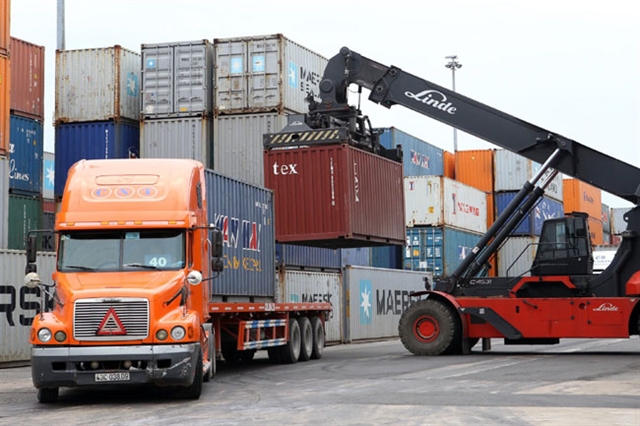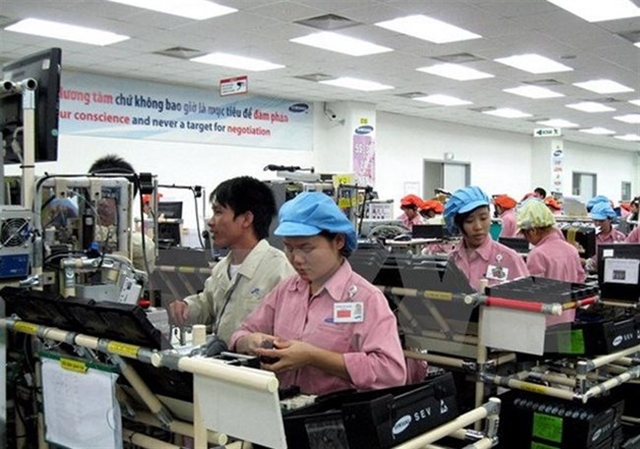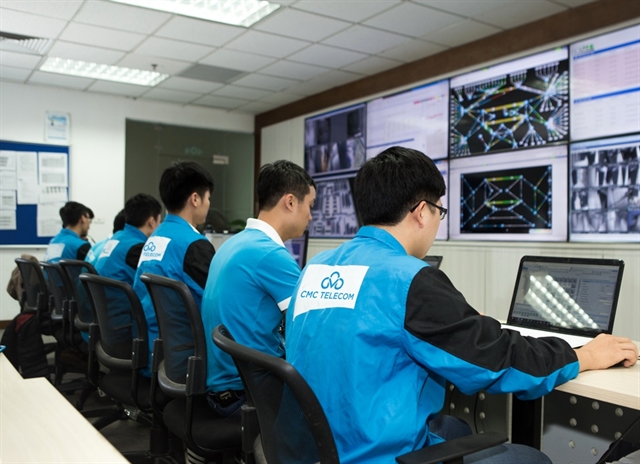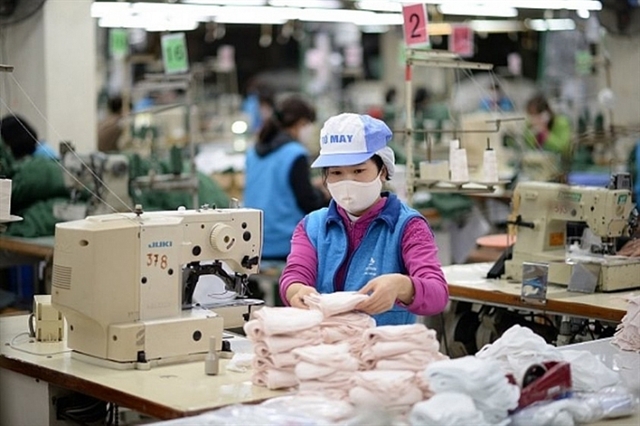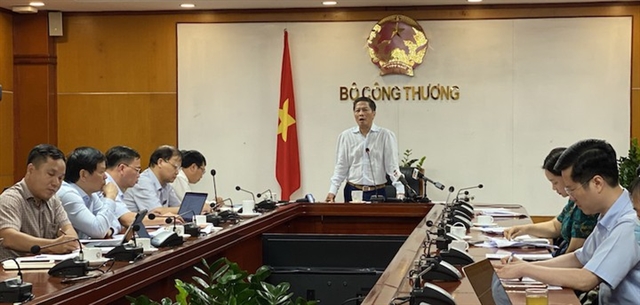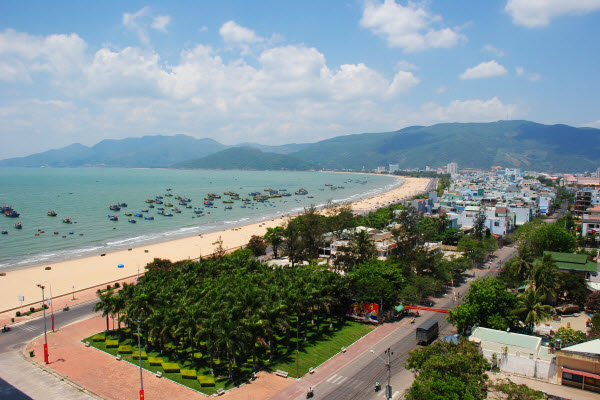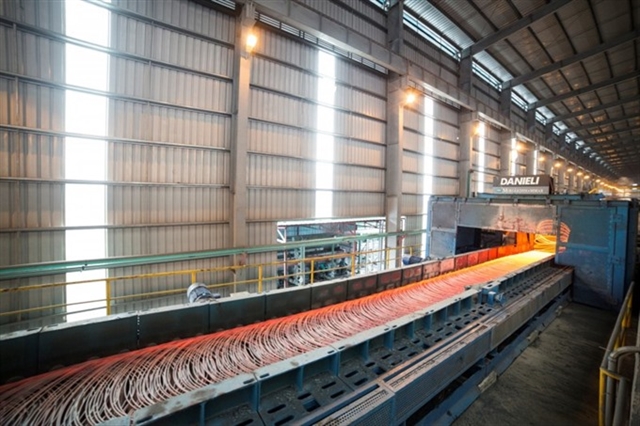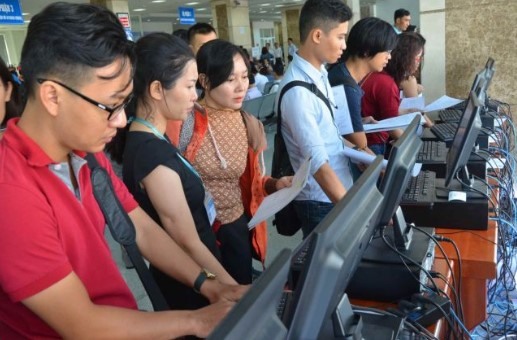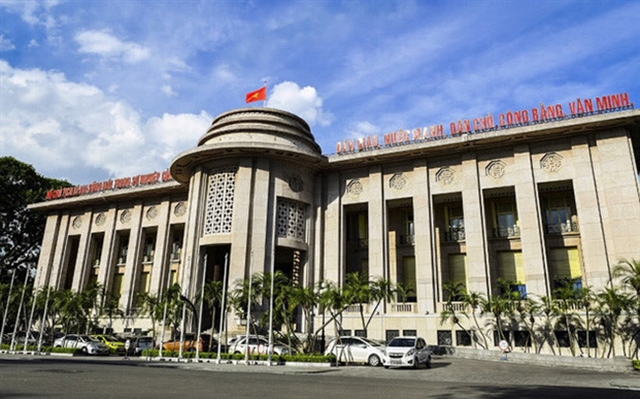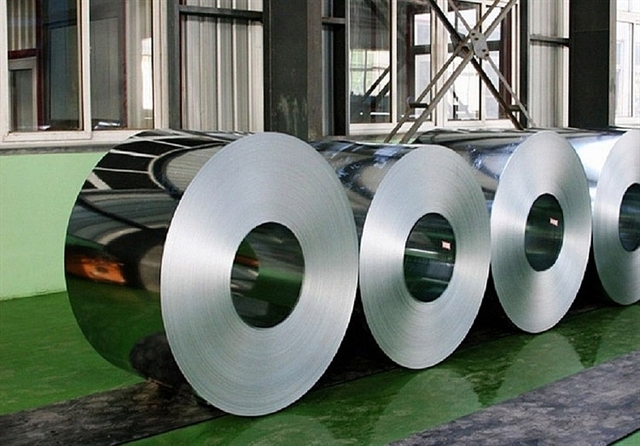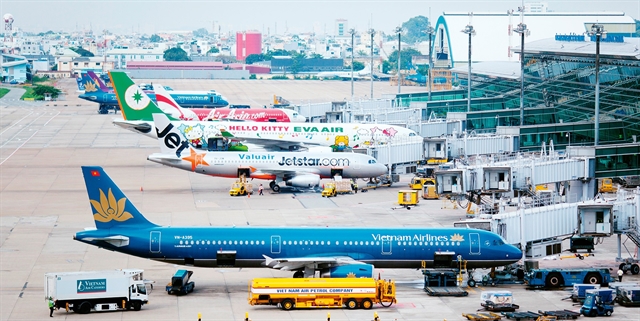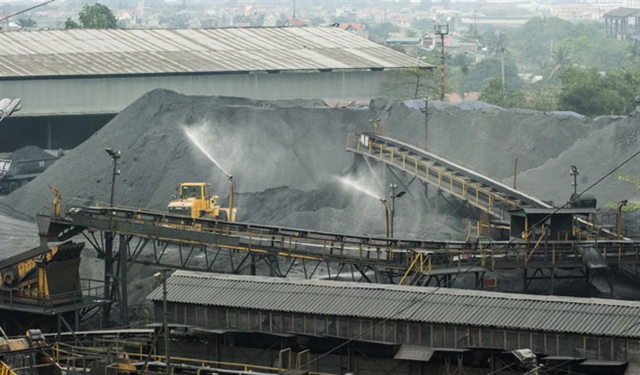
HÀ NỘI — Việt Nam's coal imports have increased during the COVID-19 pandemic.
Statistics of the General Department of Việt Nam Customs showed the country imported 4.4 million tonnes last month.
The price of imported coal was about VNĐ1.4 million (US$60) per tonne.
Việt Nam has imported close to 36 million tonnes of coal in the first seven months of this year, with a turnover of $2.5 billion.
Import volume is estimated to have increased more than 46 per cent from the same period last year with an average price of VNĐ1.6 million per tonne.
The markets Việt Nam imports the most coal from are Indonesia, Russia and China.
Coal from Indonesia was imported the most in the past seven months with 11.2 million tonnes and a turnover of more than $540 million. The average price was more than VNĐ1.1 million per tonne.
Coal imported from China only accounted for 140,000 tonnes, but the price was high at VNĐ6.2 million per tonne, nearly three times higher than the average price of other countries.
The General Department of Việt Nam Customs said coal imported from China was high-quality coal for iron refining.
Coal imports from Indonesia and Russia were mainly coal dust, serving thermal power plants.
Việt Nam's coal import activities have surged recently. The country imported more than 43.7 million tonnes of coal of all kinds last year with a turnover of $3.78 billion, a year-on-year increase of 91 per cent in output.
The Ministry of Industry and Trade said Việt Nam's increasing coal imports were mainly due to the demand for coal for large power plants.
Meanwhile, exploiting coal domestically was increasingly difficult and costly.
The country's Power Development Master Plan VII still has a large number of coal-fired thermal power plants.
Of these, build-operate-transfer (BOT) thermal power plants, thermal power plants for industrial parks and export processing zones have their own coal trading mechanism. Therefore, enterprises signed contracts to import cheap coal from abroad instead of buying domestic coal.
Trương Duy Nghĩa, chairman of the Việt Nam Thermal Science and Technology Association, told Đất Việt (Vietnam's Land) newspaper that the country's coal export volume decreased while import volume increased as the exploitation situation was more difficult and coal reserves with favourable mining conditions had been exhausted.
Investment costs and coal prices are increasing as most coal mines need to be exploited deeper than previously, posing a higher level of danger.
Domestic coal is mainly exploited to serve the electricity industry and other industries such as chemicals and construction materials.
Each industry uses different types of coal with different quality and Việt Nam tends to export coal for domestic use and import other types of coal suitable for electricity production and industry, said Nghĩa.
This was an economic problem, as the country was exporting one tonne to buy two tonnes, he said.
Việt Nam imports coal coke from China because it cannot produce the coal, while metallurgy requires coke coal, so it is forced to import, he said.
He added the current amount of coal in Việt Nam was very small, with exploitable reserves only about between 1.2 billion tonnes and 2 billion tonnes.
Therefore, Việt Nam will have to import more coal in the future and to ensure a stable and long-term supply for power plants, the country must think about investing in mining.
He suggested a number of investment directions such as buying mines, joint ventures with other countries for and buying or building and exploit ports.
In addition, attention must be paid to coal transport ships, he said. The larger coal transport vessel, the lower the transportation costs.
"Therefore, once determined to import more coal, Việt Nam must pay attention and do the above. We can hire transport ships, but investing in deep-water ports and loading and unloading systems at ports is a must,” noted Nghĩa. — VNS
